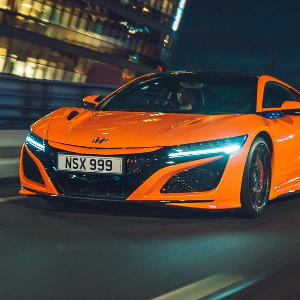
Renault is introducing its first electrified option to the Clio as part of a new hybrid push. Ted Welford puts it to the test
What is it?

The Clio is a key part of Renault’s line-up
The Clio is a car that needs little introduction – this has been Renault’s best-seller for 30 years and continues to be one of the most popular cars across Europe.
Now in its fifth-generation – which arrived with petrol and diesel engines last year – this supermini has taken a turn upmarket with a fantastic new interior and sharp, premium looks.
It also sits on a new platform known as CMF-B (Common Module Family for B-segment vehicles, if you want to know), which means the Clio is ready to accept an electrified powertrain for the first time.
What’s new?

Renault was one of the earliest manufacturers to jump into the EV market nearly a decade ago, with its commercial models and popular Zoe hatchback. But despite having all this expertise with electric models, it’s taken up until now to offer a hybrid (most manufacturers tend to do this the opposite way around).
Known as E-Tech, Renault says its new hybrid technology is inspired by the firm’s experience in F1, and there’s a huge amount of innovation going on underneath the surface, with 150 separate patents being filed for it.
It’s being introduced to the Clio, Captur and Megane, and on the Clio, it’s a ‘self-charging’ setup, which we’ll get on to shortly. It aims to bring the best of both worlds by offering the best performance and efficiency of any derivative in the range.
What’s under the bonnet?

The new E-Tech combines petrol and electric power
Rather than use an existing Renault engine and bolt on the electrical gubbins, Renault decided to start from scratch with the E-Tech. So it uses a new naturally-aspirated 1.6-litre petrol engine mated to two electric motors and a 1.2kWh battery. It’s then mated to a clever clutchless six-speed automatic gearbox.
In terms of performance, Renault claims it can reach 60mph in 9.7 seconds, though because of the torque produced from the electric motor, it feels quicker than the figure suggests. But it’s efficiency where the Clio E-Tech scores highly as it’ll return a claimed 64.2mpg, with low CO2 emissions of 98g/km giving it a benefit-in-kind of 22 per cent – much lower than regular petrol and diesel models.
What’s it like to drive?
Out on the road, the additional pace from the electric motor (only one provides additional drive, a second acts as a starter/generator) is really noticeable and gives the Clio plenty of punch for overtaking and getting up to speed. The E-Tech powertrain also feels much more effective than other ‘regular’ hybrids – for one it can travel at higher speeds while still in ‘EV’ mode, and Renault says that plenty of urban driving can be done without having to use the engine.

